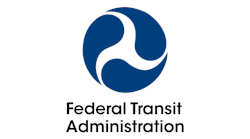Three transit projects receive grants co-funded by DOE, FTA
Three transit-centric projects were awarded grants in July from the U.S. Department of Energy (DOE) as part of $130 million in funding to advanced vehicle technologies research across the United States. The three transit projects’ grants were co-funded between DOE’s Vehicle Technologies Office (VTO) and the U.S. Department of Transportation's Federal Transit Administration (FTA).
VTO’s Energy Efficiency Mobility Systems (EEMS) program conducts system-level research to improve mobility, affordability, and energy efficiency at the transportation system level. FTA improves public transportation for America’s communities through policy innovation, funding, technical assistance and oversight. Public transportation plays a key role in an efficient and affordable transportation system providing a natural opportunity for inter-agency collaboration.
VTO and FTA are partnering to use data and technology to improve the efficiency and effectiveness of public transportation so that it better meets Americans’ transportation demands. The recipients of the cooperative research grants are Massachusetts Institute of Technology (MIT), Chattanooga Regional Transportation Authority (CARTA) and Utah State University.
The MIT team will improve public transportation service quality, ridership and energy efficiency by designing a Transit-centric Smart Mobility System platform. The platform will aid public transportation agencies in creating short-term operating plans and real-time control strategies that adapt to changing demand patterns and are resilient and responsive to disruptions. The MIT project will conduct field experiments to demonstrate the mobility and energy efficiency impacts in Boston and Chicago. The MIT team will work with DOE’s National Renewable Energy Laboratory (NREL) to measure the project impacts using the Mobility Energy Productivity (MEP) metric. The project received $1.75 million, which includes $320,000 from FTA.
CARTA will develop a software platform that uses an artificial intelligence engine to enhance mobility and energy efficiency by co-designing fixed-route public transportation, micro transit and paratransit systems. By integrating on-demand operations with fixed-route public transportation service through courtesy stops, and using the available capacity in paratransit services, the project aims to improve public transportation accessibility in Chattanooga from 41 percent to 73 percent. This means 73 percent of Chattanooga residents will have frequent public transportation service within a quarter mile of their home. The project received just over $1.75 million, which includes $320,000 from FTA.
Utah State University will develop a suite of planning and operations tools to enable public transportation transit bus electrification. The tools include a public transportation network design tool, simulation and operations tool and a smart charge scheduling and management tool. Together, this suite of tools will improve the energy efficiency of public transportation bus systems by reducing travel time, decreasing upfront cost by right-sizing electric batteries and minimizing charging costs through smart-charging management. The project received $1.75 million, which includes $325,000 from FTA.
These three-year projects will research, develop and demonstrate ways that public transportation affordability and efficiency can be improved using data and technology. The tools developed by these three projects will be transferable to other communities and have the potential to improve public transportation systems nationwide.



